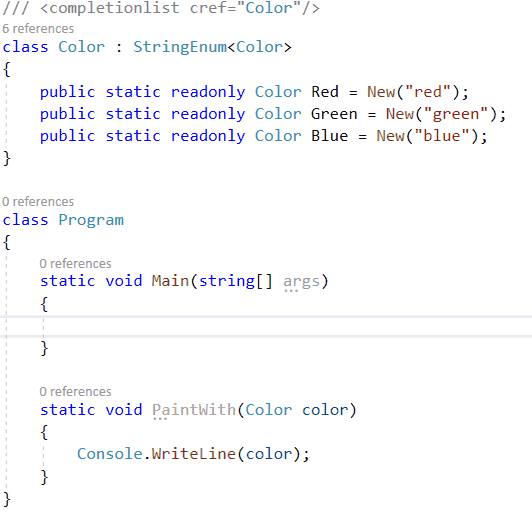Adding still something more as some of the answers here are missing the point of using enums. Naturally one option is is to have well defined strings as static variables etc, but then you're opening your interface for illegal values also, i.e. you need to validate the input. With enums it's guaranteed that only allowed values are passed to your interface.
enum Separator
{
Comma,
Tab,
Space,
CRLF,
SoFunny
}
In addition to this you can use e.g. an internal Dictionary for the mapping purposes.
private readonly Dictionary<Separator, string> separatorMap = new Dictionary<Separator, string>()
{
{ Separator.Comma, "," },
{ Separator.Tab, "\t" },
{ Separator.Space, " " },
{ Separator.CRLF, "\r\n" },
{ Separator.SoFunny, "Your Mom" }
};
Even more sophisticated method for doing this is to create a static class to give the enum new capabilities and handle the mapping there.
Example of using code above would be like.
public string TransformToSingleString(List<string> values, Separator separator)
{
var separateWith = separatorMap[separator];
...
}
